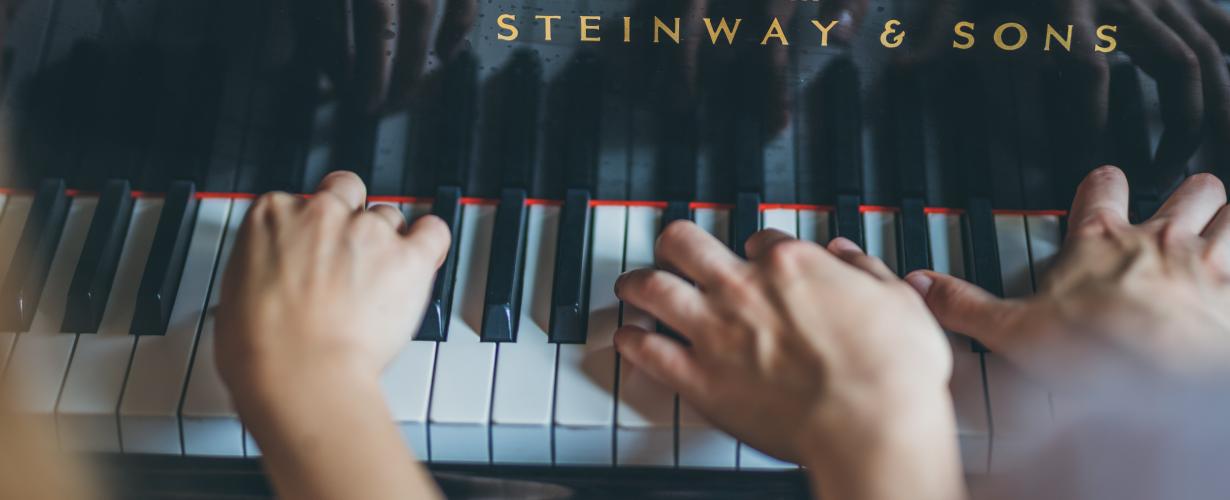RESEARCH DAY CONTEMPORARY PERFORMANCE PRACTICE
‘EXPERIMENTATION VERSUS INTERPRETATION’
25 October 2018 --- Kleine Zavel --- 070
10.30 YIANNIS EFSTATHOPOULOS
HIPP and new interpretations
How can the methodology of historical informed performance practice make us to rethink the sound production to our instruments and how can this lead to a new approach and aesthetic? By reinventing lost performance practices we can arrive to new interpretations that are based on both academic and artistic research but at the same time they are opposed to what we like to listen and how we should perform nowadays. Pertaining to performances that could serve the current generations though, the artistic practice brings a series of personal choices and assessments, which are the most creative part of this process.
11.15 MARCO MANTOVANI
FORMAL INNOVATIONS IN SCHUMANN’S PIANO MUSIC:
CIRCULAR FORM and NARRATIVE STYLE in the case study of Novellette N.8 op.21
My doctoral research will focus on Schumann’s piano works composed between 1836 and 1838 because I believe this period represents one of the turning points of Schumann’s personal and artistic life. Here we can find many of his most important piano works and some of the most enlightening examples of his particular compositional process and his formal and structural innovations.
In this presentation I will concentrate on the eighth and last piece from the Novelletten op.21 (1838), being this cycle a perfect representation of Schumann’s formal ambiguity between considering the eight pieces as part of a whole or as separated units. Even if each piece tells its own story and is perfectly coherent and complete, I believe this work is so much more than just a collection of ‘character pieces’. The use of the ‘Witz’ (wit), defined by the beloved Jean Paul as the capacity of understanding hidden and unobvious links between apparently different things, can help, I think, to go closer to the real meaning of the composition.
Finally, I find the eighth Novelette a perfect example of the Narrative style that characterizes Schumann’s production of that time.
How do these formal and stylistic innovations affect the Interpretation of Schumann’s Music?
How does this knowledge change the perspective of the interpreter?
12.00 PHILIPPE LAMOURIS
Emotion in music – the results of my exploration experiment
12.45 break
14.00 NUNO CERNADAS
Mystic Polyphony and Sonic Spatiality in Scriabin’s Sonata Nr.8
This presentation intends to deconstruct the building blocks that form the structure of Scriabin’s 8th Sonata, written in his late mystic phase. Through the analysis of the composition and the problematization of performance related issues, it will be discussed the ways in which Scriabin binds the many apparently individual musical elements into one rich tapestry, and the pianistic challenges in the creation of a tridimensional “sound‐space” where these elements cohabitate and intertwine.
14.45 TOMASZ KONIECZNY
On artistic failures
We deem some artistic explorations disastrous. But in what way we can distinguish in art failures from successes? What or who is there to decide?
Starting reflection from the famous advice given by Samuel Beckett ("Ever tried. Ever failed. No matter. Try again. Fail again. Fail
better.") I will attempt to reflect on the critical problem for artistic evaluation: Can art be successful at all?
16.00 KEYNOTE SPEAKER / PAULO DE ASSIS (Orpheusinstituut Gent)
EXPERIMENTATION VERSUS INTERPRETATION
This presentation explores notions of “experimentation” in relation to the performance practice of Western notated art music, proposing a move beyond commonly accepted codes and conventions of musical “interpretation". In this new approach—corresponding to an artistic practice deeply supported by reflections and research—the performance of past musical works is not regarded in its reiterative, reconstructive, or reproductive function. On the contrary, it insists on performance as a locus of experimentation, where “what we know” about a given musical work is problematised. The performative moment becomes both a creative and a critical act, through which new epistemic and aesthetic properties of the musical “work" emerge.
17.00 DISCUSSION
18.00 break
19.00 LECTURE-RECITAL – JAN MICHIELS
DIE LETZTE WORTE – HAYDN (Sieben Letzte Worte Jesu Christi) and LISZT (Via Crucis) revisited
